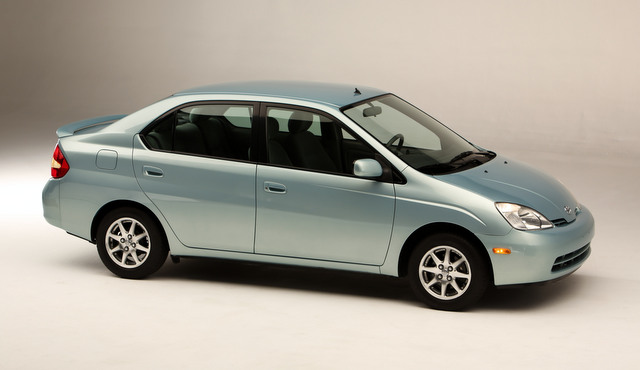Comparing Repair Costs for EVs, Hybrids, Gas Cars
This article may contain affiliate links.
To find the right vehicle can be an uphill task. You should carefully consider several factors. They include upfront price, maintenance costs, environmental implications, fuel consumption and more.

There are also several types of fuel-efficient cars to choose from. You can buy a standard gas-powered car, hybrid or an electric vehicle. The right car will ensure that you pay as little as possible for repairs. Plus, it should have lower insurance costs and give you the best extended car warranty deal. Using the best auto repair software can also help mechanics diagnose issues faster, reducing labor costs.
When hybrid cars first entered the modern automotive landscape in 2000, they were more expensive than their gas counterparts. Most mechanics didn’t want to work on them, meaning you had to go back to the dealership for repairs. So, you had to pay a high initial cost and add high maintenance costs, which made many people shy away from them.
But today, more garages know the ins and outs of hybrid and electric vehicles. So, the costs of repairs and maintenance have gone down. This means these two types of fuel-efficient vehicles have lower maintenance costs than gas-powered ones.
Why Do Standard Car Repairs Cost More Than Hybrid?
Repair costs come down to how your engine works. Hybrid cars may be cheaper to repair and maintain than standard cars. This is because the engines on hybrids shut down when stopped or when the electric motor is running. Less use means less wear and tear.

If your engine doesn’t wear fast, you will pay less for repairs and maintenance. For example, it is advisable to do oil changes every 5,000 miles on hybrid cars. On the other hand, traditional gas vehicles call for similar maintenance every 3,000 miles.
Also, hybrid vehicles have regenerative brake systems that produce little heat. This further saves you on brake pads and other brake parts.
Lastly, you typically need no special repairs and maintenance on the hybrid system. Only the Ford Escape hybrid requires any extra maintenance. It requires an air filter replacement on the electric battery unit every 40-50,000 miles.
The only costly thing with a hybrid vehicle is its large battery pack. In case it fails, it costs about $2,000 to replace it. Fortunately, hybrid vehicles have longer warranty periods—around 8-10 years or 100,000-150,000 miles.
Standard Cars Vs. Electric Cars
Studies from Consumer Reports and We Predict show that electric cars cost less to maintain and repair. This is because EVs have fewer moving parts, which mean less wear and tear. You also don’t have to do regular maintenance like oil changes on EVs.
According to We Predict, it costs almost a third less to maintain an EV compared to gas-powered ones. These results come from a three-year survey on service costs.
These service costs included software updates, repairs, maintenance and recalls. They also found that you will spend 22% less on repair costs if you own an EV.
The same research also shows gas-powered cars cost an average of 10.1 cents per mile to maintain. If you compare this with EVs at 6.1 cents per mile, you get a better deal for maintenance.

Battery Costs
Besides the higher upfront costs, most buyers dread battery fails on hybrids and EVs. An EV costs an average of $5,000 to replace your battery. And it costs even more for a new electric motor, which can set you back about $9,000.
But like hybrids, you get a longer warranty for EVs. For example, you may get 100,000 miles or more for an EV. On the other hand, your typical car has a three-year warranty or 36,000 miles.
Bottom Line
Gas-powered cars cost more to repair and maintain than hybrids or EVs. They have higher gas, oil changes, air filters, inspection and repair expenses. As a result, they may be cheaper to buy initially, but cost you on the long haul.
Some EV, Hybrid & ICE Choices to Check Out:
Flash Drive: 2022 Kia EV6
Road Test: 2022 Lexus ES 300h Hybrid F Sport
Flash Drive: 2022 Volkswagen Sedans

2 thoughts on “Tech: Are EVs More Expensive to Repair?”